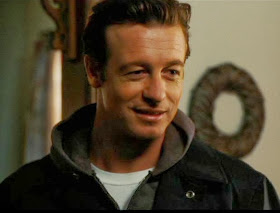 |
| "Some men are following me:" Groucho and Marilyn |
The Marx Brothers get embroiled with a penniless theatrical company when the evil Madame Egelichi (Ilona Massey of Frankenstein Meets the Wolfman) learns that a stolen necklace she covets is in a can of sardines lifted by Harpo, who brings food to the actors. Groucho is a private detective who narrates the story and in one brief sequence dallies with Marilyn Monroe in a cameo that was not her first film appearance. [She had a big part in Ladies of the Chorus with Adele Jergens the previous year, for one thing.] Chico is a wannabe performer who adopts the theater company, or vice versa. Love Happy is not a comedy classic like A Night at the Opera; in fact, it's not a very good movie and wastes the talents of its stars. As the femme fatale of the piece, Ilona Massey certainly has a voluptuous figure -- in one outfit her nipples look like loaded weapons -- but hasn't the face to match, giving her all the sex appeal of Margaret Hamilton. At first chubby-cheeked ingenue Vera-Ellen (Three Little Words) seems so squeaky clean she makes Doris Day look like a dominatrix, but she also has a good figure -- and is a very good dancer -- and is not as bad as Sadie Thompson (in a production number) as one might think. Paul Valentine makes little impression as the director/producer of the show-within-the-show. The songs by Ann Ronell are best described as forgettable, especially the lousy title tune and a truly dreadful number called "Who Stole the Jam?" which is performed by Marion Hutton (In Society), Betty's less successful sister, as Bunny. Raymond Burr plays -- and plays well-- one of Massey's thug cohorts, resulting in a bizarre moment when Harpo slaps Perry Mason in the face! There are some funny moments, especially relating to Harpo's coat from which voluminous items are pulled in one great gag, but Love Happy is mostly a sad comedown for the clowns and kind of tedious to boot. Director Miller also helmed Sudden Fear with Joan Crawford and many others.
Verdict: Not such a happy affair. **.

































